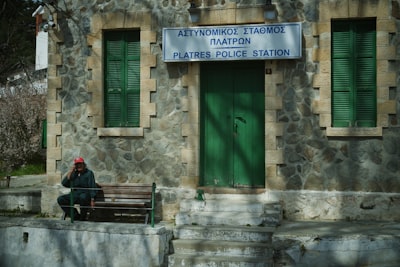Kenya’s Security Mission in Haiti: A Story of Uncertainty, Crisis, and Search for Closure
The international deployment of Kenyan police officers to Haiti has sparked intense debate, extensive media coverage, and profound personal tragedy. As family members like Miriam Watima, widow of missing officer Benedict Kuria, plead for answers, this mission raises urgent questions that many are searching for online: Is the Kenyan peacekeeping initiative in Haiti effective? What risks do African police face abroad, and what does accountability look like when officers go missing on foreign soil?
Why Did Kenya Send Police Officers to Haiti?
- Background: In response to escalating gang violence in Haiti, the United Nations and the United States backed a multinational security support mission (MSS).
- Kenya’s Role: Kenya volunteered to lead, viewing the mission both as a diplomatic opportunity and a testament to the nation’s commitment to global peacekeeping.
- Debate at Home: Many Kenyans questioned why their police were deployed to one of the world’s most dangerous environments, reviving concerns about national priorities and police safety.
The Human Toll: When Peacekeepers Go Missing
- The Kuria Family’s Plight: Officer Benedict Kuria’s disappearance after a March 2025 ambush highlights the personal cost of these missions. With conflicting reports on his fate, relatives are left in emotional limbo.
- Government Response: Despite Haitian media declaring Kuria’s death, Kenyan authorities maintain that a search continues. Families, however, express frustration over lack of transparency, sparking legal action and public appeals for clarity.
International Security Missions: Challenges and Controversies
- Effectiveness: The mission has faced setbacks, including underfunding, equipment shortages, and overwhelming gang control—90% of Port-au-Prince reportedly under gang rule.
- Past Lessons: Previous UN deployments in Haiti ended amid scandal and disease outbreaks, fueling skepticism about external interventions.
- Questions Explored Online:
- Do African-led peacekeeping operations provide different outcomes from previous missions?
- What support systems exist for police families when tragedy strikes overseas?
The Legal, Political, and Emotional Fallout
- Family Legal Actions: Kuria's family filed a court petition demanding governmental accountability and urgent information.
- Public Opinion: Criticism over transparency and risk assessment for Kenyan personnel grows alongside rising demands for government accountability.
- Personal Stories Matter: The voices of those left behind—like Kuria’s wife Miriam, his brother Philip, and his mother Jacinta—humanize the high-stakes geopolitics and underscore the emotional cost of global security operations.
How Are Other Peacekeeping Missions Managing Risk?
- Compassionate Best Practices: Some successful missions worldwide include clear fatality protocols, robust welfare support for families, and transparent incident reporting mechanisms.
- Call to Action for Policymakers: Kenya and other countries sending personnel abroad must strengthen communication, welfare, and post-incident procedures to ensure no family endures indefinite uncertainty.
FAQ: What People Want to Know About Kenya’s Police in Haiti
Q: Why did Kenya agree to lead the Haiti mission?
A: To bolster its international reputation and commitment to international peacekeeping, while responding to UN and US calls for African leadership.
Q: What are the main challenges Kenyan officers face in Haiti?
A: Extreme violence, resource shortages, and operational confusion in a volatile environment.
Q: What rights and supports do officers’ families have if a loved one goes missing abroad?
A: Support systems are often underdeveloped, driving families to seek legal remedies for answers and compensation.
Conclusion: Transparency, Accountability, and the Search for Closure
The story of Benedict Kuria and his family is a chilling reminder of the dangers faced by peacekeepers—and the need for governments to prioritize candor, support, and clear protocols for care of their deployed personnel and their families. As Kenya’s role in Haiti and other global missions evolves, public demand for accountability and human dignity must remain central to international cooperation.
Related Readings:

Comments
No comments yet. Be the first to comment!